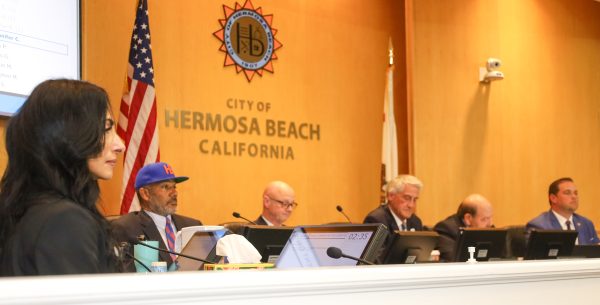
The city of Hermosa Beach is facing a lawsuit over its recent adoption of ordinances that prohibit short-term vacation rentals in residential areas.
Jim Holtz, who owns a property on The Strand in South Hermosa that he has frequently used as a short-term rental, filed the complaint in Los Angeles County Superior Court last week. Holtz, a San Pedro resident, has been one of the most vocal opponents of the new ordinances, organizing owners of rental properties and rallying them to speak at recent city council meetings.
The suit seeks to enjoin enforcement of the laws, alleging that the city committed a “prejudicial abuse of discretion” by not obtaining approval from the California Coastal Commission before passing the law and its accompanying enforcement program.
Under the California Coastal Act, municipalities with territory in the coastal zone — usually defined as the area within 1,000 yards of the mean high-tide line — are to create a Local Coastal Program (LCP), which enables them to make local zoning decisions in comportment with the act. Cities that do not have an LCP certified by the commission must obtain a Coastal Development Permit from the commission for all “development” taking place in the coastal zone.
Hermosa, like more than 30 other areas of California, does not have a certified LCP. The city is currently in the process of getting its LCP approved, and has received grants from the commission to help in the process.
Holtz notified the commission in May of Hermosa’s action, and staff from the commission’s enforcement division sent a pair of letters cautioning the city about approving the ordinance.
Holtz alleges that the city’s action in updating the ordinance constitutes “development” and therefore should have received prior approval from the commission. California case law indicates that municipal ordinances can constitute development under the law.
“We’re not saying that a city shouldn’t be able to regulate aspects of short-term rentals,” said Holtz’s attorney Alan Block, who represented the Coastal Commission in court as a lawyer with the California Attorney General. “But a total ban clearly changes the intensity of use of land.”
The city was formulating a response to the complaint in a closed-session meeting Wednesday night after press time, according to City Attorney Michael Jenkins. But previous discussions at city council meetings reveal potential responses to Holtz’s claim.
Officials have consistently noted that the city has long had a ban on short-term rentals, and that the recent ordinances merely clarified the ban to make it easier to enforce. Because the ban itself was preexisting, the new regulations would not constitute development within the meaning of the Coastal Act. (Block disputes that a previous ban existed, as has Holtz at previous meetings. Jenkins has said it comes from the code’s definitions section.)
More broadly, Jenkins has previously referred to the breadth of cities’ constitutional zoning power, and the comparatively limited role of the commission in ensuring compliance with the Coastal Act. The letters from commission staff, he argued, are not definitive statements of law.
“There are many ways for cities to make zoning consistent with the Coastal Act,” Jenkins said at the June 14 meeting. “Just because the commission staff gets it in their head that a particular practice is the only way to satisfy the Coastal Act does not make it true.”










